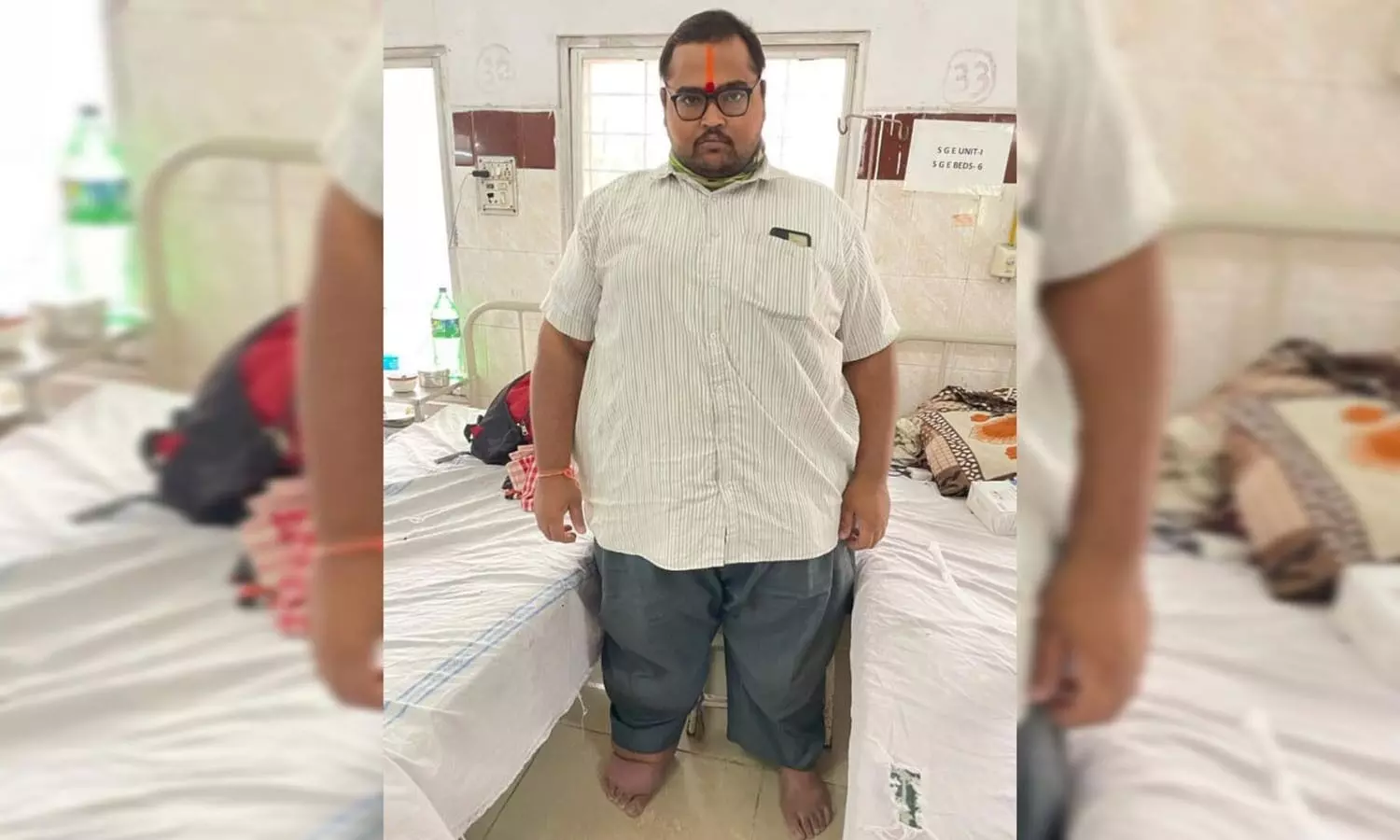Osmania hospital doctors perform rare surgery on highly obese patient
The patient was able to lose 70 kg of weight in the last two months, which is an accomplishment in itself

HYDERABAD: A very rare surgery on a highly obese patient weighing 240 kgs has been performed for the first time in Telangana at a state-run government hospital.
The surgery was carried out by a team of specialists from Osmania University's Surgical GE department, Endocrinology department, and Anaesthesia department.
23-year-old Thakur Mandira Singh, a Mahesh Nagar colony resident, was admitted in Osmania Hospital with severe obesity. He weighed 214 kg and his BMI was 66, putting him in the super obese class Ill category. He was classified as super fat since he was extraordinarily obese. He also had obesity-related diabetes, hypertension, obstructive sleep apnea, and fatty liver disease.
He was initially evaluated by Dr.Rakesh Sahal's endocrinology department. They ruled out all possible medical causes of obesity and optimised medical conditions before referring him to the department of surgical gastroenterology for bariatric surgery. He was given dietary recommendations as well as breathing exercises. He was also advised about bariatric surgery.
To minimise relapse of weight gain, the "laparoscopic mini gastric bypass" surgery was performed, which involved reducing stomach capacity as well as absorptive intestine capacity. The patient was able to lose 70 kg of weight in the last two months, which is an accomplishment in itself.
It took four hours to perform laparoscopic mini gastric bypass surgery on the patient. Following the procedure, the patient was ambulated for four hours on the table. The main principles of surgery included stomach capacity reduction and improper absorption surgery. He was on a liquid diet for one week before returning to his regular diet.
Bariatric surgery is recommended for patients who are morbidly obese as well as those who have obesity-related problems such as diabetes, OSA, hypertension, and knee osteoarthritis. Bariatric surgery should not be undertaken lightly; it should be carried out only after a thorough examination and optimization of concomitant illnesses. Close post-operative monitoring is also recommended. The challenges they encountered with this patient were that he was too obese to be adjusted on a single operating table. Dr. Madhusudhan, professor of surgical gastroenterology, and a team of surgeons performed the surgery.
Earlier, people who were obese or morbidly obese were treated with simple stomach capacity reduction surgery. This was the first time a severely obese patient was treated for weight loss surgery in a government hospital.


